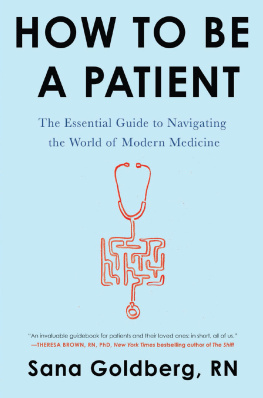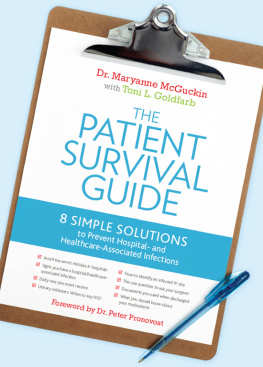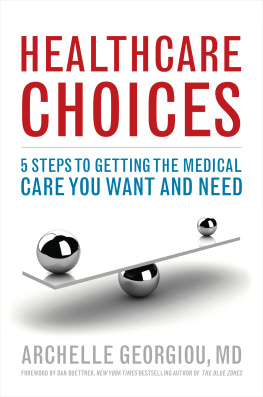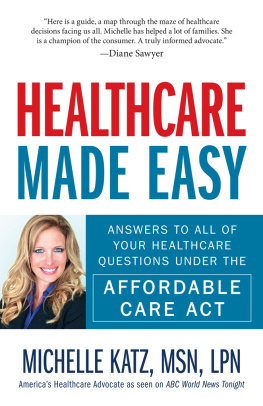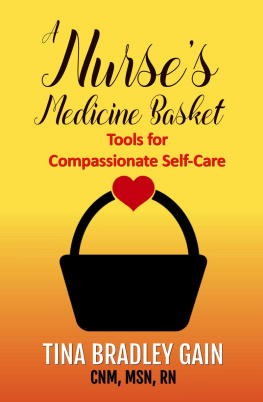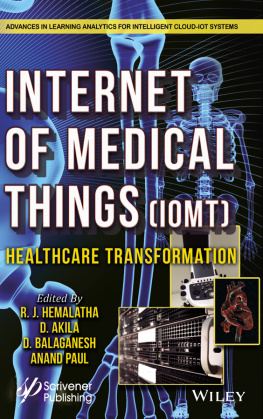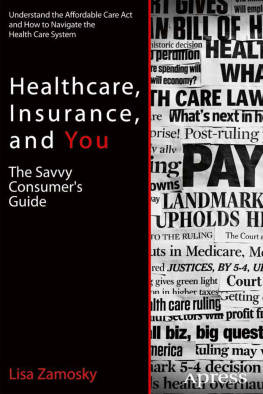For Tess, Mamie, and Gabe
Contents
I was raised by an obstetrician who used to take me with her for weekend rounds. She was a single parent, and I was shy and bookish, never wanting to stray far from her orbit. It was a convenient arrangement.
Shed drop me at the nurses station, where Id help unload speculums from the sterilizer or write the names of new admits on the dry-erase board. Id wander to the nutrition room, stocked with saltines and those little juice cups with foil lids. Id stop by the nursery, and, transfixed, stand with new dads as we watched their plump newborns roll around in lucite carts. Next to the nursery was a glorious standing linen warmer, where Id take armfuls of blanketswhich, if youve nuzzled into a pile of laundry straight from the dryer, you know the distinct pleasure ofand build forts or read Little Women in the call rooms.
I was fascinated by the swift order of things, curious every time I saw someone whisked off to the OR... and plainly horrified to learn what a circumcision was! But I knew I liked this place, preferred it to home and certainly to school. The buzzing sense of purpose and the kindnesses exchanged planted memories that would yield a particular fondness for the world of medicine.
Because Im still of an odd breed that feels at ease walking through badly lit, linoleum-floored hallways in scrubs and eating cafeteria food at insensible hours, here I am today. Ive become a nurse. Ive been a patient. Ive watched both friends and strangers move in and out of the vast and complicated maze I used to play in. As children do, I perceived the world as uncharted territory and took joy in the process of understanding its convolutions. While the curiosity persists today, the romanticism has worn off, to say the least.
We speak often of the miracles of the world of modern medicine, and at its height it is miraculous indeed. But like all worlds, it has an underbelly, one youre likely familiar with if you picked up this book. The spaces we navigate in pursuit of our healthcare today can be confusing, chaotic, and defeating. A recent article stated, In the 21st century, we still have to come to terms with the absurd reality that it is significantly safer to board a commercial airplane, a spacecraft, or a nuclear submarine, than to be admitted to a U.S. hospital. An absurd reality thats difficult to reconcile, as most of us dont enter a hospital of our own accord. With alarming consistency, the purpose and order patients rely on when they enter the world of medicine is revealing itself to be uncomfortably tenuous.
Its interesting to come to love your profession while periodically losing faith in the way it functions. To be a nurse today is to tolerate the dissonance. Its to become acutely aware of the fractures in our medical infrastructure by witnessing things fall through them everywhere from community clinics to operating rooms.
Since becoming a healthcare professional, Ive sat in on appointments where providers raced the clock and patients werent able to say much of anything. Ive listened to patients, in turn, tell me the intimate details of their concerns and expectations and then watched them fall silent and nod placidly when a team of white coats came into the room. Ive seen medical error impact most people at some point, whether or not they knew it, and Ive witnessed the insidious forms of racism and sexism that still affect how people receive care.
I faced these realities outside of my job as well. My grandfather died prematurely from misdiagnosis. My dad once sat in an ER with a pulmonary embolism and was told he was just tired and needed to go sleep it off! (In the chapter well see how Serena Williams was ignored on this front, too.) My stepmom filed for bankruptcy because of ICU medical bills. My mother, the MD who used to tote me along to the hospital, underwent aggressive chemotherapy unnecessarily.
These challenges arent limited to my family, of course. Since Ive become a nurse, Ive started to tune in when healthcare comes up in conversations out in the world. Whether its with a Lyft driver, a friend, or a strangersimilar trends emerge. People are unsatisfied with their primary care provider. Often they dont have one. When they do show up for routine appointments, people say its rare to feel listened to. Many instead tell of having their pain dismissed outright in a hospital (most patients facing this predicament are women, by the way, which well get to in ). These stories are typically accompanied by a collective air of disappointment and resignation.
The confusion, too, is universal. Whether recounting a series of appointments for a chronic illness, or a hospital stay, many struggle to reconstruct a narrative because the system struggles to explain things in a useful way. Other stories are more black and white, like a classic where the narrator goes to the ER for something minor (because it was a weekend and they didnt know where else to go) and leaves with a bill far exceeding their monthly income.
Some experience these adversities despite having access to care, and others because they cant access care to begin with due to the health inequities that pervade our society. We dont all enter the world of modern medicine from a level playing field, but the confusion doesnt discriminate. Ive met college-educated adults who dont know which screenings are covered or when theyre due. Highly organized and diligent individuals who are at a loss when it comes to navigating their aging parents sudden hospitalization, especially dealing with a team of fifteen doctors at a teaching hospital.
So, no, these are not our glory days. The blame, then, flies off in multiple directions. Some providers blame patients (burdening the system with unhealthy lifestyles). Patients certainly blame providers (too rushed, too greedy) or politicians (some want to give everyone healthcare, and others want to take it away). Everyone certainly blames the medical-industrial complex. These frustrations transcend our differences. We meet them with the same disappointment regardless of political affiliation or social standing or belief system. No matter who you are, when youre sick, you dont want to navigate a maze. What you want to do is nod to somebody and say take care of me and trust that they will.
To be sure, there are incredible individuals and organizations trying ardently to fix the broken aspects of the system and deliver better care, but the conversations are rarely public facing, or inclusive of patient input. They rarely address how patients can advocate for themselves in these highly challenging, precarious circumstances. In the moments I get a seat at the table, I ask why. What can patients themselves do to counteract these forces? The responses from practitioners, scholars, and administrators alike reveal a belief that the average patient cant understand or be expected to address these issues. It follows that despite our talk of patient-centered care and personalized medicine, we neither expect nor help patients to retain agency in action.
The most profit-driven institutions in the healthcare system, Big Pharma and the insurance industry, count on it remaining this way. Disempowered patientswhether incapacitated due to illness, or illiterate in matters of healthcareenable them to make more money and reinforce the existing cycle. (This book isnt, however, strictly about the current state of the medical system and the myriad ways its broken, and its purpose isnt to fearmonger. There are enough independent sources of that!)
On the other side, many of the protagonists of this storythose trying to change the medical system for the betterassume that those of us on the inside can fix it by ourselves. For patients, this means accepting moving at a snails pace until the problems with the healthcare system sort themselves out.
Next page
